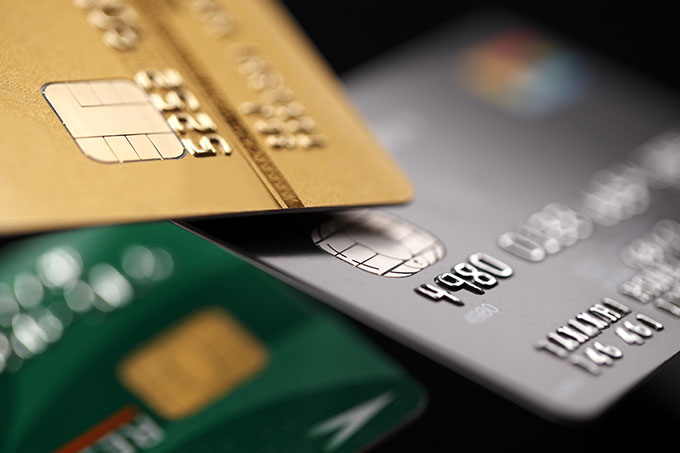Navigating the waters of personal credit can be tricky. You're told that you need 'good' credit in order to qualify for more credit, but building 'good' credit is often more difficult than it seems.
Applying for a credit card is generally considered the easiest and most effective way of building a solid credit history. It might be a card from a major department store, or an entry level Visa or MasterCard, but either way it is the first rung on the ladder of personal credit.
But there's a catch. If you have no credit history to speak of, or if your credit score is even slightly compromised, there's a fair chance you won't qualify for any type of unsecured credit card.
So what's a smart, credit hungry, consumer to do?
For many, secured credit cards provide the answer. But even here, the waters can get murky. For consumers trying to build a solid credit history, it is important to understand what secured credit means, what your responsibilities are as a card holder, and how it can effect your overall credit rating.

Most of us are familiar with the standard unsecured credit card. A bank, or other lending institution, provides a line of credit to the customer based on some key financial criteria, including current income, earning potential, outstanding debt, and personal credit history. A secured credit card is a different financial product all together.
A secured credit card requires a cash deposit from the customer, which is then held by the card issuer as collateral against the advanced credit line.
So, for example, if you were to open an account with $500 you would receive a card with a credit limit of $500. Your secured card could be used like any other credit card, with the issuer holding your $500 deposit as protection against default. You would be responsible for paying your monthly balance on time, including interest fees, just as you would with an unsecured credit card.Over time, the card issuer might allow you to increase your deposit to up your credit limit, or might even reward your good behavior by extending your credit line over and above the cash collateral you've already deposited.
Ultimately, if you manage your account responsibly, you should qualify for an unsecured credit line, at which time your original deposit is returned to you.
Before we go any further, let's pause for a moment to talk about prepaid credit cards.
People often confuse prepaid Visas and MasterCards with secured credit cards, but in reality they are two entirely different financial products.
Prepaid credit cards are little more than debit or checking cards, with any charges you make being withdrawn directly from your account. They may carry a Visa or MasterCard logo, but no actual line of credit is ever issued. Prepaid cards can make online purchases and bill paying more convenient, but they offer little in the way of credit building power. If you are looking to build, or restore, your credit rating it is important to not confuse prepaid 'credit' cards with secured lines of credit.

Currently, most national banks, credit unions, and major lenders offer secured credit lines for customers looking to establish a sound credit history. For example, CapitalOne, Bank of America, Wells Fargo, and America First Credit Union all offer secured credit lines for qualifying customers. That being said, there has been a growing trend away from secured credit cards, with some lenders preferring to offer their customers unsecured cards with lower limits and higher interest fees. However, this trend really only applies to applicants with little or no credit, and anyone with a compromised credit history will be unlikely to qualify for even a low limit/high interest unsecured credit card. For customers with damaged credit, secured lines of credit are still the best, and in some cases the only, option on the table.
Applying for any credit card requires a little research, and it pays to take your time and shop around for the best deal. Like any financial product, fees and services will vary among different lenders; so, as always, read the fine print carefully and ask for clarification of any terms or condition that you do not fully understand. Consider the following points when shopping for a secured credit card:

The primary benefit of a secured credit card is that it allows you to build a good credit history, or to restore a compromised credit score, so it is vital that you use it wisely. Carrying a balance is never a good idea, and you should plan to pay off your monthly balance on time and in full. To reap the full benefits of a secured credit card, look at it as a stepping stone to building a solid credit history. Only spend what you can afford to pay off in a timely manner; not just to avoid interest fees and charges, but also to demonstrate that you are capable of managing your debts responsibly.
It may take some time to ultimately qualify for an unsecured line of credit. Your card issuer will want to see that you can manage your finances responsibly, and that you pay your bills on time. Depending on your initial credit score, qualifying for an unsecured credit card could take as little as one year. If your initial credit score was severely compromised, or if you fail to make timely payments on your account, it may take longer to build up your credit rating to a point where you will be eligible for an unsecured credit card.
Secured credit cards offer consumers an opportunity to build a solid credit history, or to rehabilitate a damaged credit score. However, they do come with some financial baggage. Secured credit cards typically have higher annual fees and higher interest rates than unsecured cards, and should only be seen as a temporary alternative to an unsecured line of credit.
For those with little or no credit history or those looking to restore a damaged credit score, secured credit cards offer a viable pathway to unsecured credit and the opportunity to build a strong credit history that will allow for greater financial freedom in the future.
The Federal Reserve has hinted they are likely to taper their bond buying program later this year. Lock in today's low rates and save on your loan.
Are you paying too much for your mortgage?
Check your refinance options with a trusted Columbus lender.
Answer a few questions below and connect with a lender who can help you refinance and save today!